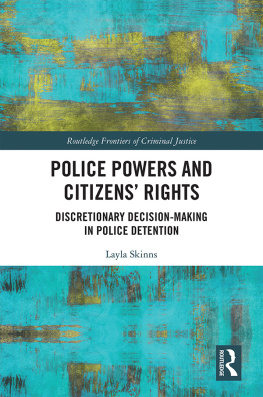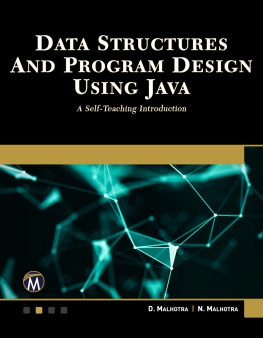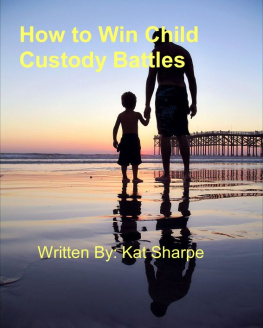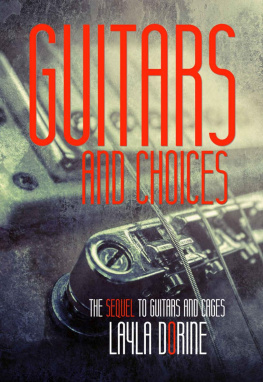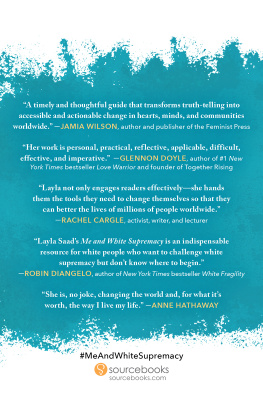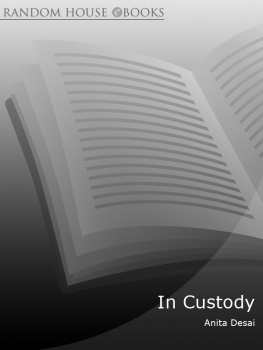Layla Skinns - Police Custody
Here you can read online Layla Skinns - Police Custody full text of the book (entire story) in english for free. Download pdf and epub, get meaning, cover and reviews about this ebook. year: 2012, publisher: Routledge, genre: Politics. Description of the work, (preface) as well as reviews are available. Best literature library LitArk.com created for fans of good reading and offers a wide selection of genres:
Romance novel
Science fiction
Adventure
Detective
Science
History
Home and family
Prose
Art
Politics
Computer
Non-fiction
Religion
Business
Children
Humor
Choose a favorite category and find really read worthwhile books. Enjoy immersion in the world of imagination, feel the emotions of the characters or learn something new for yourself, make an fascinating discovery.

- Book:Police Custody
- Author:
- Publisher:Routledge
- Genre:
- Year:2012
- Rating:3 / 5
- Favourites:Add to favourites
- Your mark:
- 60
- 1
- 2
- 3
- 4
- 5
Police Custody: summary, description and annotation
We offer to read an annotation, description, summary or preface (depends on what the author of the book "Police Custody" wrote himself). If you haven't found the necessary information about the book — write in the comments, we will try to find it.
Police Custody — read online for free the complete book (whole text) full work
Below is the text of the book, divided by pages. System saving the place of the last page read, allows you to conveniently read the book "Police Custody" online for free, without having to search again every time where you left off. Put a bookmark, and you can go to the page where you finished reading at any time.
Font size:
Interval:
Bookmark:

in the criminal justice process

| 1 |
| 2 |
| 3 |
| 4 |
| 5 |
| 6 |
| 7 |
| 8 |
| 9 |
| Figures |
| 2.1 |
| 3.1 |
| 6.1 |
| 6.2 |
| 8.1 |
| Tables |
| 3.1 |
| 3.2 |
| 3.3 |
| 3.4 |
| 5.1 |
| 5.2 |
| 5.3 |
| 5.4 |
| 5.5 |
| 5.6 |
| 6.1 |
| 7.1 |
| A.1 |
| AA | Appropriate adult |
| ACPO | Association of Chief Police Officers |
| APAC | Assessment of Policing and Community Safety |
| AR | Arrest referral |
| CCTV | Close-circuit television |
| CDRP | Crime and Disorder Reduction Partnership |
| CDS | Direct Criminal Defence Service Direct |
| CEG | Community engagement group |
| CID | Criminal Investigation Department (for the police) |
| CJIT | Criminal Justice Integrated Team |
| CPS | Crown Prosecution Service |
| DDO | Designated detention officer |
| DFs | Dihydrochloride |
| DIP | Drug Intervention Programme |
| DP | Detained person |
| DS | Detention supervisor |
| DSCC | Defence Solicitor Call Centre |
| ECHR | European Convention on Human Rights |
| ECtHR | European Court of Human Rights |
| FME | Forensic medical examiner |
| GBH | Grievous Bodily Harm |
| HMIC | Her Majestys Inspectorate of Constabularies |
| HMIP | Her Majestys Inspectorate of Prisons |
| HRA | Human Rights Act 1998 |
| IPCC | Independent Police Complaints Commission |
| MAPPA | Multi-Agency Public Protection Arrangements |
| MPS | Metropolitan Police Service |
| MQPL | Measuring the Quality of Prison Life |
| NPIA | National Policing Improvements Agency |
| NSPCC | National Society for the Protection and Care of Children |
| NSPIS | National Strategy for Police Information Systems |
| OHCHR | Office of the UN High Commissioner of Human Rights |
| OIC | Officer in the Case |
| OPCAT | Optional Protocol for the UN Convention Against Torture |
| PACE | Police and Criminal Evidence Act 1984 |
| PCCG | Policecommunity consultation group |
| PCSO | Police Community Support Officer |
| PFI | Public Finance Initiatives |
| PRA | Police Reform Act 2002 |
| RCCJ | Royal Commission on Criminal Justice 1993 |
| RCCP | Royal Commission on Criminal Procedure 1981 |
| RSPCA | Royal Society for the Protection and Care of Animals |
| SPT | UN Subcommittee on Prevention of Torture and other Cruel, Inhuman or Degrading Treatment or Punishment |
Font size:
Interval:
Bookmark:
Similar books «Police Custody»
Look at similar books to Police Custody. We have selected literature similar in name and meaning in the hope of providing readers with more options to find new, interesting, not yet read works.
Discussion, reviews of the book Police Custody and just readers' own opinions. Leave your comments, write what you think about the work, its meaning or the main characters. Specify what exactly you liked and what you didn't like, and why you think so.

